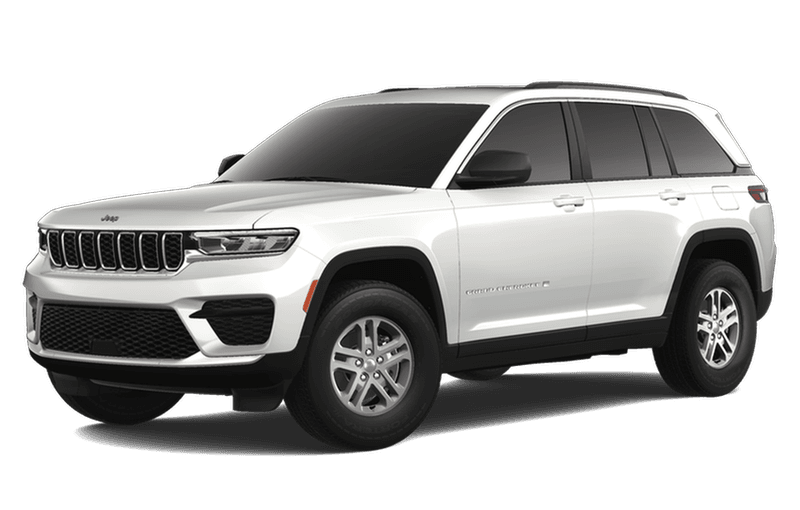
What is the Diesel Reliability on the Jeep Grand Cherokee?

The 3.0-liter diesel engine that comes standard in the Jeep Grand Cherokee Diesel is capable of producing a good amount of power while maintaining respectable fuel efficiency, with a combined mileage rating of an average of 25 miles per gallon. You can conquer virtually any terrain with the assistance of four-wheel drive and a solid mid-sized SUV. Read on to find out how dependable diesel Jeep Grand Cherokees are!
In summary, the Jeep Grand Cherokee EcoDiesel is very reliable and can last a long time; nevertheless, like most car manufacturers, it has its flaws; on average, the jeep will operate for roughly 200,000 miles or more before needing major repairs or having issues.
Contents
What is Jeep Cherokee EcoDiesel?
The engine of the Grand Cherokee is a 3.0L six-cylinder turbo diesel engine with 240HP and 420 lb-ft of torque produced by the Italian manufacturer VM Motori. The engine can achieve 31 MPG on highway and 25 MPG combined.
Is the Grand Cherokee Ecodiesel reliable?
The diesel Jeep Grand Cherokee is very good. Many individuals report that they are pleased with their Jeep Grand Cherokee because of its excellent fuel efficiency, torque, and power, but some common issues may arise from time to time.
How long does diesel last on the Jeep Grand Cherokee?
Many users say that their Jeep Grand Cherokee eco-diesel lasts more than 200,000 km. It’s one of the reasons why the Jeep Grand Cherokee has a long lifespan. You can anticipate it to operate faultlessly for 10–20 years, or 200,000–300,000 km.
Common Diesel Problems on the Jeep Grand Cherokee
- Catalytic converter failure: It is common knowledge among owners of diesel Grand Cherokees that the cat converters will eventually fail, but this is not a major issue. If you need to replace it, the typical price range is between $600 and $1,000. However, this costly fix should never have been necessary in the first place if proper car maintenance had been carried out.
- Transmission Issues: Transmission is a big problem with the Diesel Jeep Grand Cherokee, as many people have reported transmission problems. One of the most common problems is a failure when shifting from 2nd to 3rd gear, but it is rare because the grand Cherokee transmissions are quite good.
- Diesel NOx sensor Failure: Many people complain about the diesel NOx sensor failure, which can make your Jeep halt or not move properly. When a Nox sensor fails, many issues can arise, and in most cases, the vehicle will either not operate or run very poorly. This is one of the most common issues that can arise with a diesel Grand Cherokee, and it does so very frequently.
- Check Engine light: The check engine light has been reported as being problematic in some diesel Jeep Grand Cherokees; however, it is not a major issue. It may be due to a faulty NOx sensor or a catalytic converter, but as was said earlier, replacing either of those components can be quite expensive.
- Is the Diesel Jeep Grand Cherokee any good?: The Diesel version of the Jeep Grand Cherokee offers excellent fuel economy and tons of power and torque. The diesel engine performs quite well. This is the perfect car for you if you want a wonderful experience driving on the highway. The only issue is that it requires a great deal of expensive maintenance due to the hypersensitivity of diesel engines.
Jeep Grand Cherokee Diesel vs. Gas
The Diesel Grand Cherokee has significantly more torque to tow your trailer or any other vehicle. In comparison to a gas-powered jeep, it has more power. Gas Jeeps are a lot lighter than diesel Jeeps because gas Jeeps use N2O, but the diesel Jeep is still an excellent automobile.
Compared to the gas Grand Cherokee, Diesel Jeeps have a much better fuel economy; you can achieve approximately 24 MPG Combined, and even more on the highway. Because of this, Diesel Jeeps can help you save money.
The gasoline version of the Grand Cherokee has more horsepower and torque than the diesel version, which means that it can pick up speed more easily and that its acceleration is quicker and more effective than that of a diesel. However, the diesel Grand Cherokee has higher torque and can tow heavier loads, such as a camper, trailer, or boat.
The diesel Grand Cherokee is slightly more expensive than the gas Grand Cherokee.
